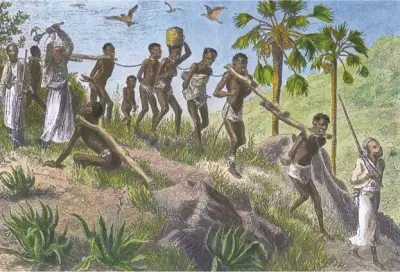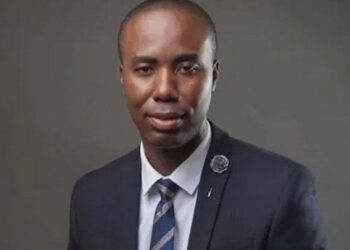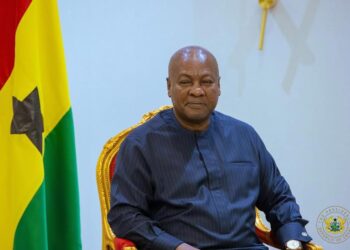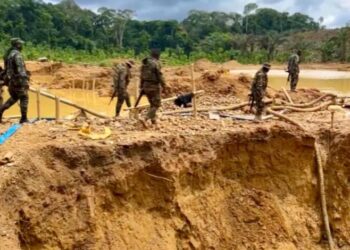I was inspired to write this piece after a personal encounter with #Marvin Hokstma, originally from Suriname, a Dutch Caribbean Island. Marvin’s story made me realise the pressing need to expose people of black descent to the complete history of slavery, including the terrible events that occurred before the slaves arrived at the castles on the coast.
I have personally visited the Cape Coast and Elmina Castles and heard the heartbreaking stories of how humans were traded, brutalised, and abused.
I learned about how women were molested and tortured to satisfy the sexual desires of white men. Hearing Marvin recount these stories in a workshop of white teachers in the Netherlands made me feel the weight of this history even more profoundly.
This encounter underscored the need to cast the spotlight on the untold story of the slave trade, including the origins of many slaves in Northern Ghana.
The narrative surrounding the transatlantic slave trade often centres on the coastal regions of Ghana, where infamous castles such as Cape Coast and Elmina became tragic symbols of human suffering.
However, this focus on the coastal trade neglects a crucial aspect of the story: the origins of many of these enslaved individuals in Northern Ghana.
This piece seeks to challenge the prevailing narrative by highlighting the role of Northern Ghana in the slave trade, the markets where slaves were traded, and the cultural expressions that remember these dark times.
Furthermore, it advocates for the inclusion of Northern Ghana’s history in the “Beyond the Return” initiative, aiming to offer a complete and honest portrayal of the African diaspora’s roots.
The slave trade in Ghana did not solely originate from the coastal regions. Many slaves who ended up in the castles of Cape Coast and Elmina were forcibly taken from the northern parts of the country.
This region, rich in history and culture, played a significant role as a source of captives during the transatlantic slave trade.
The major slave markets in Northern Ghana that I know and have visited include the Salaga Market: Known as the “Timbuktu of the South,” This market was a central trading hub where slaves from various parts of Northern Ghana and beyond were gathered before being transported to the coast.
Another crucial market in the slave trade was Bole. The Bole area served as a transit point for slaves en route to coastal regions.
The Yendi Slave market played a vital role in the internal and trans-Saharan slave trade, connecting Northern Ghana to broader trade networks.
In Pikworo, Paga, located in the Upper East Region you will find a transit point for slaves. The footprints of survival are marked on the rocks.
The legacy of figures such as Babatu and Samori Ture remains embedded in the history of Northern Ghana. Babatu, a notorious slave raider, and Samori Ture, a formidable resistance leader turned slave trader, both had significant impacts on the region.
Statues and monuments in the Upper West Region serve as reminders of their complex legacies. The placement of these statues in Wa, the regional capital of the Upper West Region, sparks debate about how we remember and interpret history.
While some view these figures as symbols of resistance and resilience, others see them as representations of the region’s painful involvement in the slave trade.
These differing perspectives highlight the need for a nuanced understanding of history that acknowledges both the contributions and the atrocities committed by these historical figures.
In the Lawra Municipality, Yikpee to be precise, David Kuudegr tells the story of how some brave women attacked and confiscated a firearm belonging to a slave raider who laid in ambush to catch citizens of Lawra within the environs of Ambur, Dikpe, Yikpee, and other nearby areas.
These residents depended on the Black Volta for fish and water. This act of resistance showcases the courage and resilience of the local people in the face of the slave trade’s horrors, highlighting another important but often overlooked aspect of Northern Ghana’s history. The story of the journey from the slave markets in Northern Ghana to the coast paints the portrait of a gruelling ordeal, often undertaken on foot. Slaves were forced to march hundreds of miles under harsh conditions, suffering from thirst, exhaustion, malnutrition, and disease. Many did not survive the journey.
The route typically began from markets such as Salaga, Bole, Yendi, and Paga, where captives were marched southwards through the dense forests and savannas, often chained together to prevent escape.
They passed through various transit points where they were further traded and transported. Deaths along the way were common. The weak, sick, or injured were often abandoned or killed by the traders to avoid slowing down the march.
The sheer brutality of the journey and the high mortality rate underscore the inhumanity of the slave trade and the immense suffering endured by the captives.
The Government of Ghana (GOG)’s “Beyond the Return” initiative aims to connect the African diaspora with their roots in Ghana.
However, for this initiative to be truly effective, and for our sons and daughters in the diaspora to get true healing, the initiative MUST include the full story of the slave trade, including the significant role played by Northern Ghana.
Recognising the contributions and suffering of people from this region will provide a more comprehensive and honest portrayal of the African diaspora’s origins.
By incorporating the history of Northern Ghana into the “Beyond the Return” narrative, the government can offer a more inclusive and accurate representation of Ghana’s role in the transatlantic slave trade.
This effort will not only honour the memory of those who suffered but also educate descendants of the diaspora about the diverse and complex history of their ancestry.
Dedicated to Marvin Hokstma, founder of the #Bross Institute https://broos. institute/ and all people of #BlackAncestry #slavery #slaveryhistory #blacklivesmatter #beyondthereturn #capecoastcastle #slavetrade










Discussion about this post